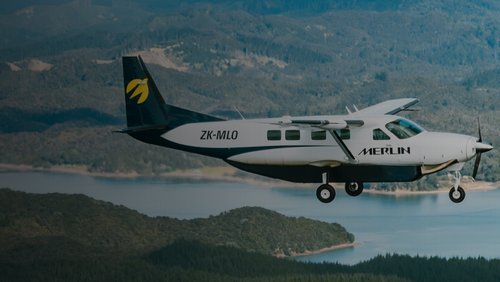13 Oct 2022
Lorenzo Garcia from AUT gives us an in-depth insight into his career and how to be a role model for students.
What is your role at AUT?
Wow. Multiple. I'm an Academic in the School of Engineering. I belong to the Mechanical Engineering Department. I deliver a curriculum within my area of expertise: engineering design and biomechanics. I must touch on related subjects, such as:
- the design of medical devices
- engineering simulation and analysis (CAE, CAD, CAM)
- kinematics and dynamics
- coupled physics modelling, sometimes known as multi-physics
- even innovation management, due my prior background in technology transfer and commercialisation of technology.
I'm also the Director of the Biomechanical and Biomechatronic Design Research Unit, my research group. It's currently integrated within the BioDesign Lab Institute where I'm the theme leader of this area. I develop three main research lines: assistive and rehabilitation technologies, tools for trauma and orthopaedics medicine, and bio-inspired systems for healthcare and conservation of nature.
Finally, I assume different service roles, for instance, academic advisory for mechatronic engineering and biomedical engineering programs. I act as an expert consultant, per external request, on topics related to innovation management, forensic biomechanics, technology transfer, etc. and I belong to different committees and groups. The AUT Women in Tech, is one of them. It's an AUT initiative to support and encourage women within the engineering and technology sector.
Academics make great role models for students. How do you role model to your student engineers?
Certainly. I absolutely agree. I think in your contract as an academic indirectly you assume you're the mirror, the lighthouse, the Polaris of generation after generation of students. It's a responsibility, a pressure, but also a tremendous fortune to have the possibility to inspire them. But don’t forget, we're just as simple humans as someone else, with our strengths and weakness.
In my case, I try to act with integrity, at least as much as possible. No one is perfect. I also try to practice with my own example. I try to be coherent with my values and align my values and my passions in my practice. I have two passions, healthcare, and nature and therefore my research around the design of medical and bio-inspired devices allows me to spread my enthusiasm with my students. I always say we, as engineers, have the opportunity (and the responsibility) to create a better world.
I try to share my experiences with my students and motivate them to achieve the best of themselves. It is what I try to do, but with equilibrium. For instance, this year, I was nominated as an Astronaut Candidate for the European Space Agency (ESA) and, therefore, I was invited to participate in the selection process. I was aiming high. With six stages overall, the selection process is one of the world’s most competitive. Applicants must be a citizen of an ESA member or associate member state (I am Spanish) and must hold a master’s degree (or higher) in science or engineering, with more than five years of professional experience in a relevant field, have fluency in several languages, be medically ready to become a pilot and dispose of the flexibility to cope with irregular working hours, frequent travel, and long absences from home, family, and regular social life, and finally, the ability to remain calm under pressure.
I wrote a little article about the experience titled “Aim high: a simple hint to STEM scholars and to everyone”. Within it, I shared my message to the students which can be summarized by saying that it is only by aiming high, challenging ourselves, and by pushing boundaries, that dreams can be achieved, but we must embrace the process without fear of missing the target.
The process was tremendously satisfying. It's very hard and just to be nominated, per se, is an achievement. It is not enough to be highly technically skilled or to also have high social capabilities, leadership personality, excel in group work and collaborative environments, and dispose of good physical and mental health. Sense of adventure, demonstrated experience in extreme expeditions and tolerance to risk are essentials. The people I was lucky to meet during the selection process were outstanding, and the camaraderie among us all is something I am not going to experience again. Definitively, it was an elite group. I keep in touch with many of them, particularly with the cohort from Spain.
Why do you think it is important that engineering students join professional bodies like Engineering New Zealand?
As simple as it allows you to grow, and it contributes to the development of your profession. It's the first door to be engaged and updated in the discipline, but also it offers additional benefits, networking, engagement and even you can be part of social activities.
At AUT we allocate an entire session to talk about professional engineering practice. We include it under one of our first-year courses. We talk about the professional bodies in general and we talk about Engineering New Zealand in particular, encouraging our students to join it, as it's free.
Personally, I think it's very important to belong to professional bodies. In my case due to the variety of my profile and the heterogeneity of my areas, I'm currently part of 5 different professional bodies including some at the national level and others at the international level.
How do you describe the Washington Accord to student engineers?
It's an advantage we have as engineers against other professions. It's an international agreement that guarantees our degrees are recognized overseas. It also establishes the standard for professional engineering education programs across the world.
Although in Europe we have this harmonization in tertiary education among the different state’s members, the Washington Accord is even more powerful. You never know where you will land developing your career. Look at me! I'm probably a good example, located in the antipodes, almost literally at the farthest possible distance from my hometown.
Tell us about three of your career highlights
I think the first highlight was the appointment as national coordinator of the intellectual property and valorisation group. I guess it was a recognition of my expertise in technology transfer. I would say the second highlight, although it may sound naïve, was the opportunity to act as theme leader at the BioDesign Lab Institute, developing my Biomechanics and Biomechatronic Design area. I demonstrated to myself, that I was able to transition from the industry to academia. Finally, of course, the nomination as an Astronaut Candidate in the 2021/2022 selection process by the European Space Agency. I believe it's not just the recognition of almost 20 years of experience in R&D but also in my entire lifestyle.
Complete the following sentence. Without engineers, the world would be....
Just different. Without engineers, the world would be worse or better, but I encourage engineers to choose the latest, to contribute to the creation of a better place for all sorts of living creatures.
If you could meet any engineer in the world, who would it be and why?
This is a very tricky question. There are amazing people out there developing incredible work. You made me think. Let me choose three. I would like to know Alfonso Borelli, author of a book titled, De Motu Animalium (or On the Motion of Animals) in the late 17th century, based on an Aristotelian treatise, which relates animals to machines and utilize mathematics to prove his theories. Probably, he is the father of biomechanics.
I also would like to meet Richard Feynman, although he is not an engineer but a physicist. He was very inspirational and contagious and to me a role model to follow as a lecturer. And, finally, when I was defining my research area after moving to New Zealand, I came across with the biomedical engineer, Giada Gerboni, and her work on soft robotics applied to design instruments for MIS (Minimally Invasive Surgery), a field related to my postgraduate studies. If you allow me to name someone else, outside engineering, I really want to share a discussion in a slow walk with the mathematician and economist, Nassim Nicholas Taleb. He exposes certain aspects of academia which certainly resonates with me.





